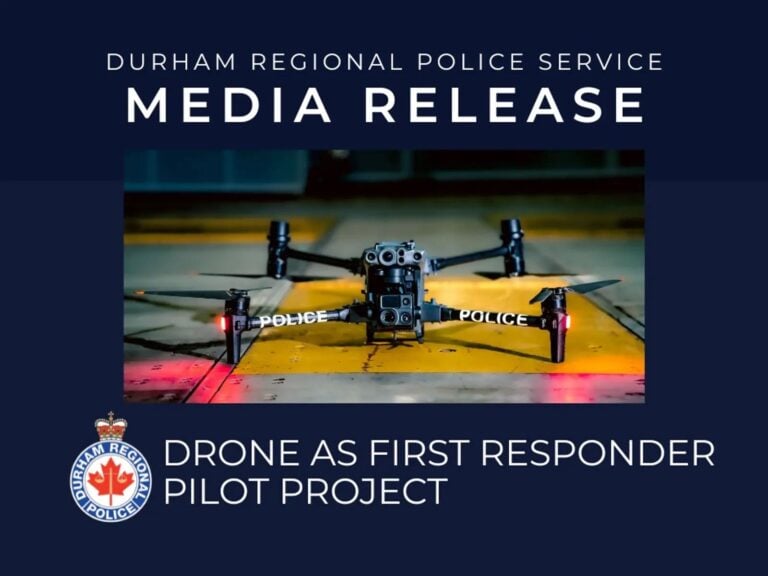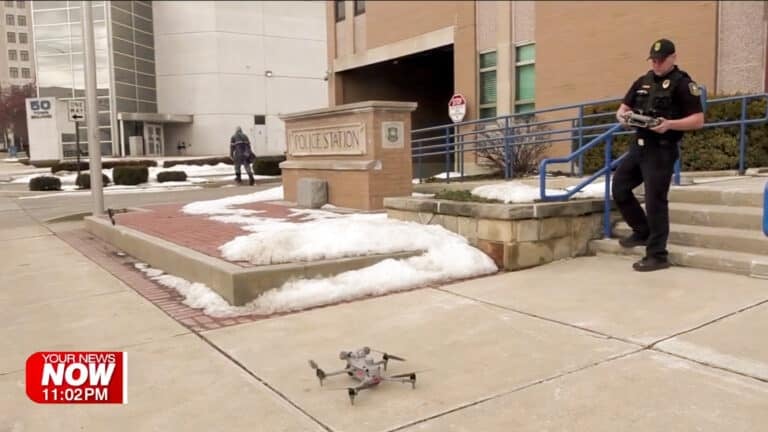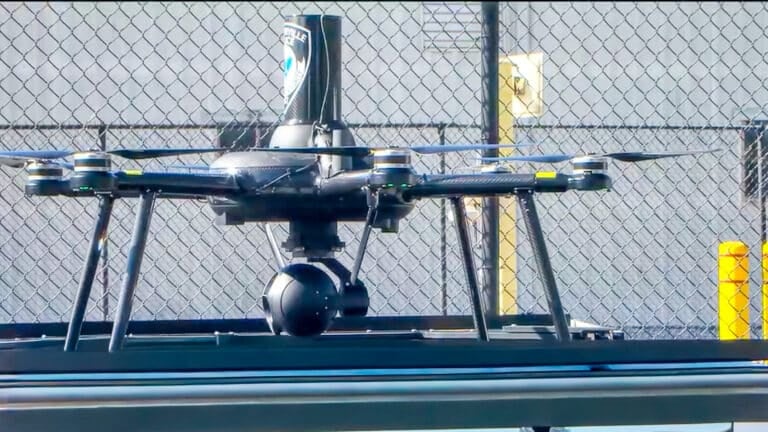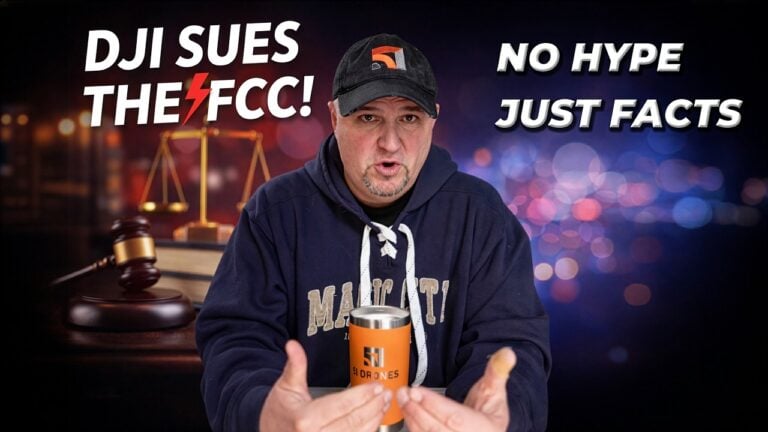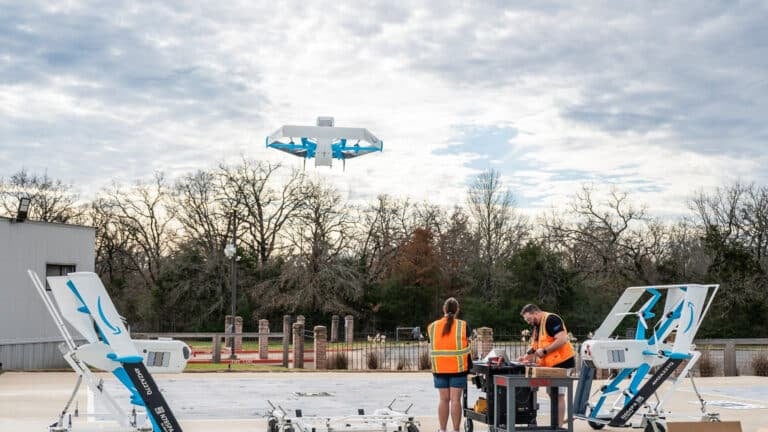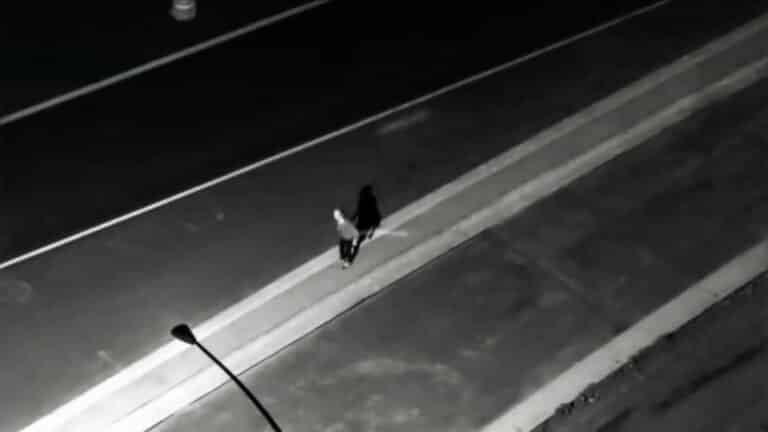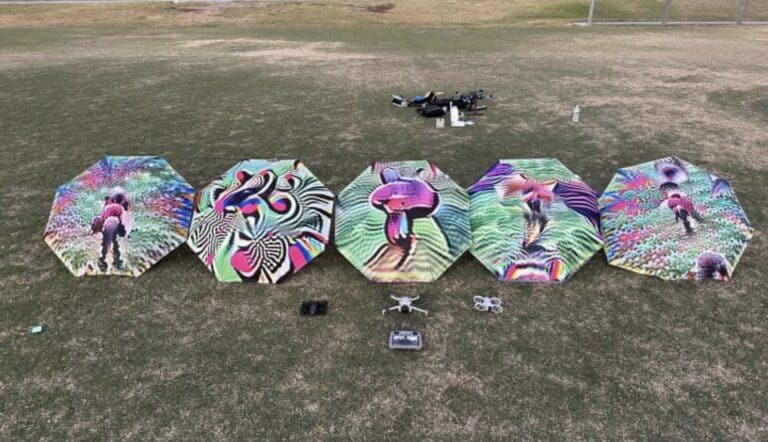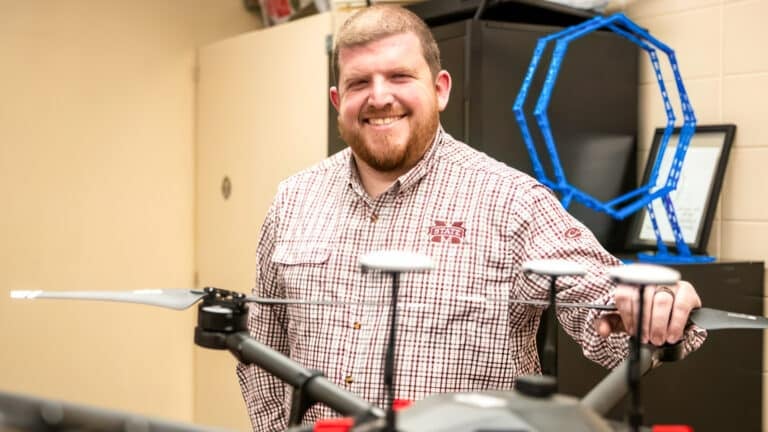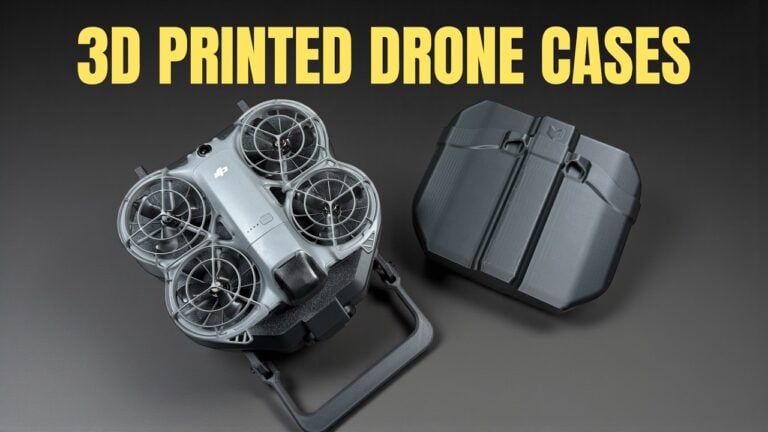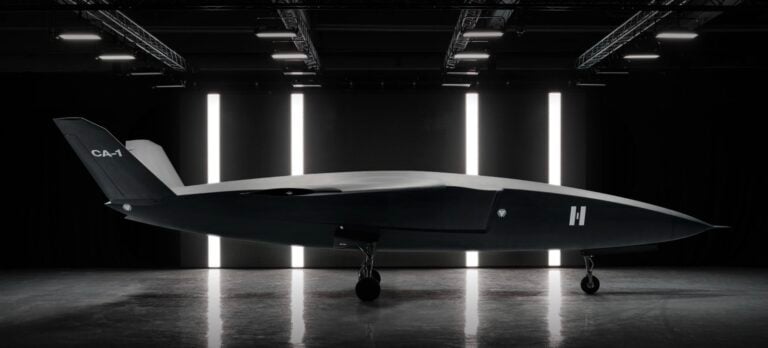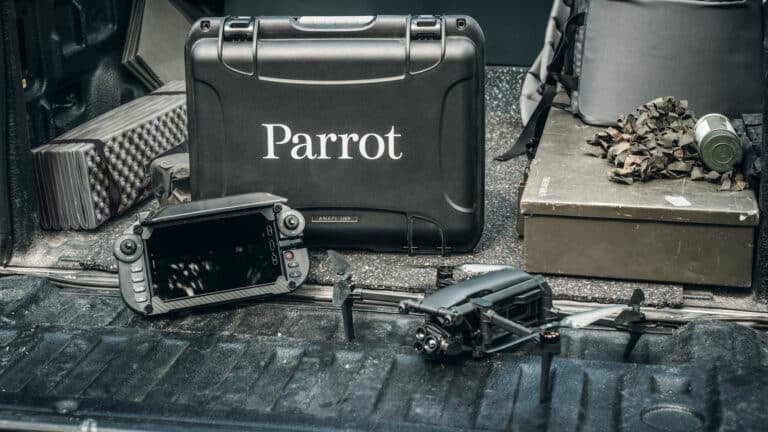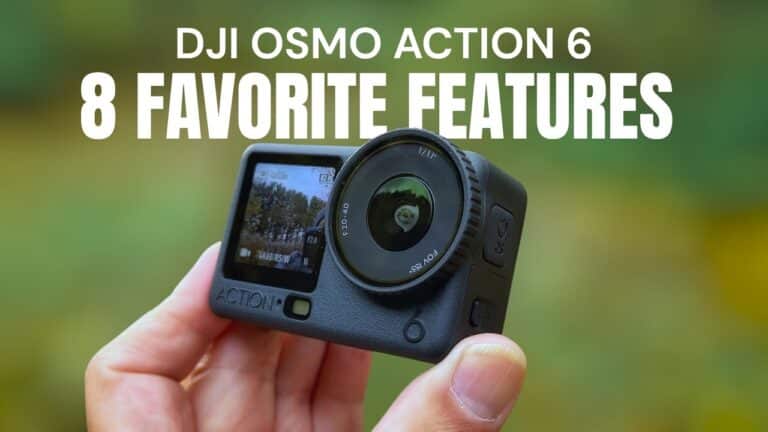FCC Grants Itself Retroactive Power To Ban DJI Drones, Shell Companies Face December Deadline

Check out the Best Deals on Amazon for DJI Drones today!
The Federal Communications Commission voted 3-0 yesterday to grant itself unprecedented authority to retroactively ban equipment from companies on its Covered List, directly targeting DJI’s rapidly expanding network of shell companies ahead of a critical December 23 deadline. The FCC can now block devices containing Covered List components and revoke previously authorized equipment in specific cases.
The timing creates a regulatory trap for DJI. Section 1709 of the 2025 National Defense Authorization Act requires a U.S. national security agency to complete a security review of DJI by December 23, 2025. If no agency finishes the review, DJI automatically joins the FCC’s Covered List, blocking new drone imports.
EDITOR’S NOTE: Crucially, DJI is not currently on the FCC’s Covered List. This means the Commission’s new retroactive enforcement authority, while now established, has no immediate effect on DJI drone operations. That could change if DJI is added to the Covered List on or after December 23rd, when the FCC must publish its next update. While such an addition appears increasingly likely given recent congressional pressure, it remains uncertain. For now, there’s no need to panic. DJI drones remain legal to operate in the United States, and will continue to be unless and until the company appears on the Covered List.
FCC Closes Two Critical Loopholes
The October 28 order addresses gaps that allowed Covered List companies to continue operating through workarounds. Current regulations prevent companies like Huawei, ZTE, and Hikvision from receiving new equipment authorizations, but two loopholes remained open.
First, existing rules didn’t prevent Covered List component parts from being used inside otherwise authorized devices. Shell companies could source DJI controllers, batteries, and communication systems while branding products under different names. Second, previously authorized equipment remained valid indefinitely once approved.
The new rules prohibit authorization of any devices containing Covered List component parts. They also allow the FCC to revoke previously authorized equipment when national security concerns emerge. This retroactive authority represents a significant departure from the Huawei precedent, where existing authorizations remained valid.
On December 23, less than two months from today, new DJI products will automatically be banned from import into the United States unless an “appropriate national security agency” proactively vouches that they do not pose a risk to national security. Products will be banned because companies will be added to the FCC’s “Covered List” under the Secure and Trusted Communication Networks Act, which bars the FCC from authorizing their internal radios for use in the United States. Without that authorization, importing those items for sale becomes illegal.
Shell Company Strategy Faces Immediate Threat
Security researcher Konrad Iturbe has documented at least nine suspected DJI shell companies submitting FCC applications since March 2024, including Skyany, Skyrover, Cogito, Spatial Hover, Jovistar, Fikaxo, and Lyno Dynamics. These companies market DJI-designed drones under alternative brand names, primarily manufactured in Malaysia.
The evidence linking these companies to DJI is substantial. FCC filings contain DJI logos on controller diagrams, identical OcuSync frequency signatures matching DJI’s proprietary 2.4-2.483GHz, 5.15-5.25GHz, and 5.725-5.85GHz bands, and battery specifications matching unreleased DJI models. The Skyany X1, essentially a rebranded DJI Mini 4 Pro, currently sells on Amazon for $758 with Prime shipping.
Iturbe built an automated monitoring system that scans FCC filings daily for DJI’s distinctive OcuSync frequencies. “I built a small bot that finds these shells,” Iturbe explained in previous coverage. “Every day, the bot goes to the FCC and it searches through the listings for the DJI OcuSync, specific frequencies.”
The component parts prohibition creates immediate problems for this alternative branding strategy. Once DJI lands on the Covered List in 56 days, any devices containing DJI components would fall under the new restrictions. Shell companies using DJI technology face the same limitations as DJI-branded products.
Retroactive Enforcement Creates Timing Trap
The retroactive revocation authority eliminates the safety net shell companies anticipated. Even if companies receive FCC authorizations before December 23, those certifications could be pulled after DJI joins the Covered List.
This differs sharply from DJI’s earlier understanding. Eight months ago, DJI policy head Adam Welsh told The Verge the company assumed Covered List addition wouldn’t be retroactive. “If we were added to the covered list, it’s not retroactive,” Welsh said in February, describing what he called “a perverse situation” where current Mavic models would continue selling in the United States while newer models would only be available in Canada, Mexico, and elsewhere.
That calculation no longer holds. The FCC’s new authority means existing authorizations provide no protection once a company joins the Covered List.
No U.S. security agency has confirmed it’s conducting the mandated DJI review. “More than ten months have now passed with no sign that the process has begun,” DJI global policy head Adam Welsh told The Verge. DJI has publicly called for the audit to proceed, but the December 23 deadline continues approaching with no federal action scheduled.
Enforcement Already Proving Effective
The FCC isn’t making empty threats about enforcement. Chairman Brendan Carr told Reuters this week that major U.S. retailers have removed millions of product listings for prohibited Chinese electronics following FCC oversight. The removed items include security cameras and phones from companies like Huawei and ZTE.
Carr added that companies are “putting new processes in place to prevent future prohibited items” from appearing on their platforms. That enforcement mechanism through retailer compliance would apply equally to drone shell companies once DJI joins the Covered List.
DJI’s official U.S. store currently shows most models as “sold out.” Inventory has tightened significantly at major retailers including Best Buy, Amazon, Costco, and B&H Photo as the December deadline approaches.
The new order directs the FCC to conduct a “public interest analysis” for each product, giving “particular weight” to any national security risk posed by the item. The FCC must then “provide an opportunity for public comment for a minimum of 30 days.”
Impact On Existing Drone Owners
The FCC emphasized that current DJI drone owners can continue flying their equipment. “We emphasize that we are currently not requiring manufacturers to replace equipment in the hands of consumers,” reads part of a 60-page fact sheet released with the order. “The continued use of such equipment that is already in the hands of users would remain authorized.”
However, the long-term viability of existing DJI drones remains uncertain. Once DJI joins the Covered List, the company may be unable to provide firmware updates, replacement parts, or technical support if those services require FCC compliance. Software updates that require recertification would be blocked.
DroneXL’s Take
This FCC vote represents the culmination of a regulatory chess game DroneXL has been tracking since March 2024. We first reported on DJI’s shell company strategy when Konrad Iturbe exposed Cogito Tech’s Specta Air as a rebranded DJI Air 3. Since then, we’ve documented the expanding network as Iturbe’s automated detection system identified company after company submitting FCC applications with telltale OcuSync signatures.
Two weeks ago, we explained how the October 28 vote would close loopholes DJI had been exploiting. Yesterday’s 3-0 decision confirmed our analysis. The component parts prohibition exposes the fundamental flaw in DJI’s shell company strategy: you can change the name on the box, but you can’t hide the DJI technology inside.
What makes this particularly significant is the retroactive enforcement authority. When Florida Senator Rick Scott demanded the FCC retroactively yank certifications for all DJI equipment authorized since December 2024, we opposed that overreach as setting a dangerous regulatory precedent. The FCC’s more measured approach—allowing retroactive revocation in specific cases after public comment—strikes a better balance between security concerns and due process.
The real question now becomes enforcement. The FCC already demonstrated it can pressure major retailers to remove millions of prohibited electronics listings. Will Amazon, Costco, and B&H Photo remove Skyany, Skyrover, and Jovistar drones once the FCC determines they contain DJI components? Konrad Iturbe’s frequency detection methodology provides regulators with a technical roadmap for identifying disguised DJI products.
The December 23 deadline creates a 56-day window where the entire DJI ecosystem—branded products, shell companies, and component suppliers—faces automatic restriction. No federal agency has scheduled the security review that could prevent this outcome. DJI has publicly requested the audit proceed, but the silence from U.S. security agencies suggests the automatic ban is becoming increasingly likely.
For American drone operators who rely on DJI equipment, this represents the most serious threat yet to their operations. The combination of automatic Covered List addition, component parts restrictions, and retroactive enforcement authority eliminates every workaround DJI attempted to build.
What do you think? Should the FCC have retroactive authority to revoke equipment authorizations, or does this create too much regulatory uncertainty for businesses? Share your thoughts in the comments below.
Discover more from DroneXL.co
Subscribe to get the latest posts sent to your email.
Check out our Classic Line of T-Shirts, Polos, Hoodies and more in our new store today!

MAKE YOUR VOICE HEARD
Proposed legislation threatens your ability to use drones for fun, work, and safety. The Drone Advocacy Alliance is fighting to ensure your voice is heard in these critical policy discussions.Join us and tell your elected officials to protect your right to fly.
Get your Part 107 Certificate
Pass the Part 107 test and take to the skies with the Pilot Institute. We have helped thousands of people become airplane and commercial drone pilots. Our courses are designed by industry experts to help you pass FAA tests and achieve your dreams.

Copyright © DroneXL.co 2026. All rights reserved. The content, images, and intellectual property on this website are protected by copyright law. Reproduction or distribution of any material without prior written permission from DroneXL.co is strictly prohibited. For permissions and inquiries, please contact us first. DroneXL.co is a proud partner of the Drone Advocacy Alliance. Be sure to check out DroneXL's sister site, EVXL.co, for all the latest news on electric vehicles.
FTC: DroneXL.co is an Amazon Associate and uses affiliate links that can generate income from qualifying purchases. We do not sell, share, rent out, or spam your email.




